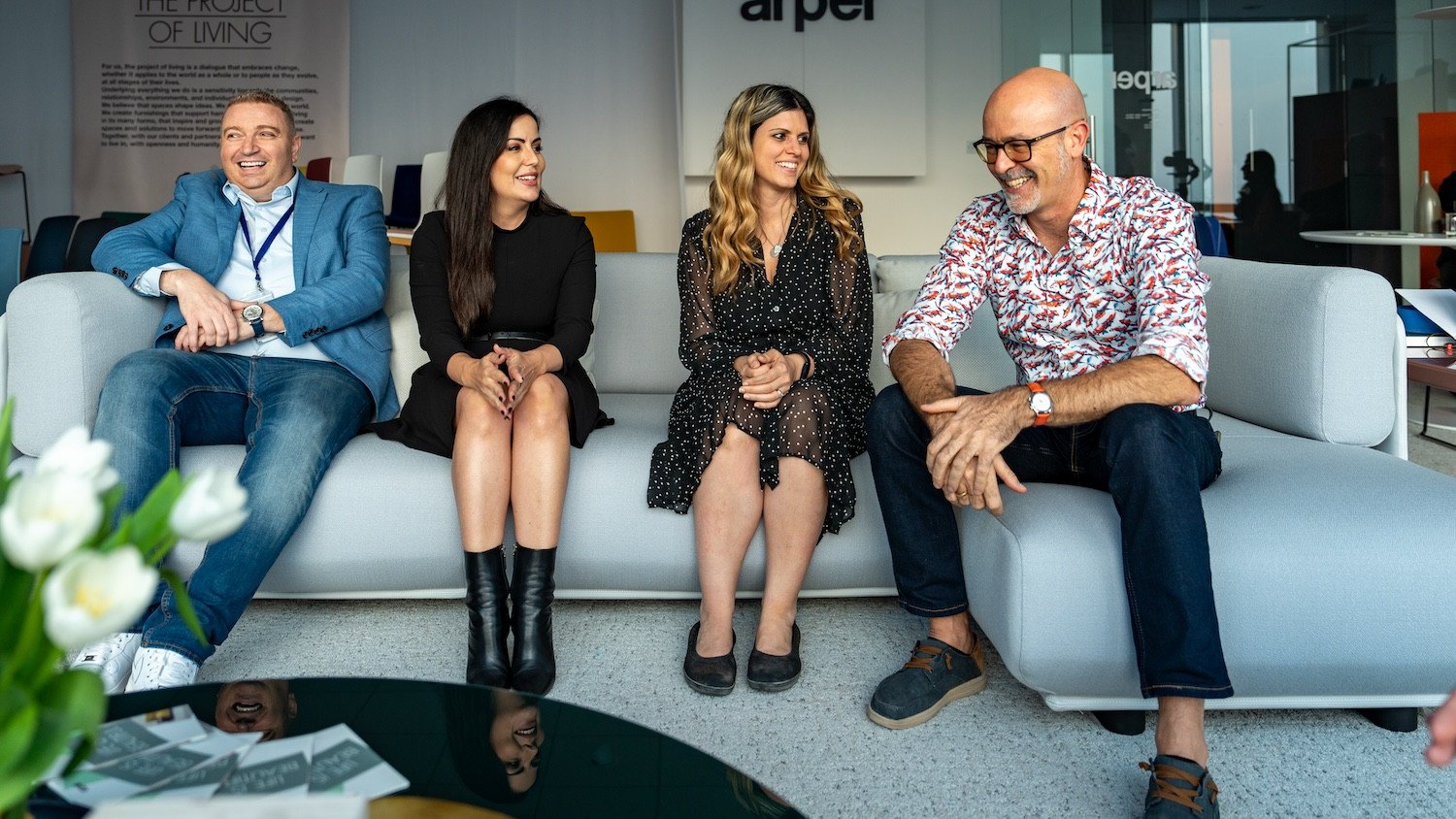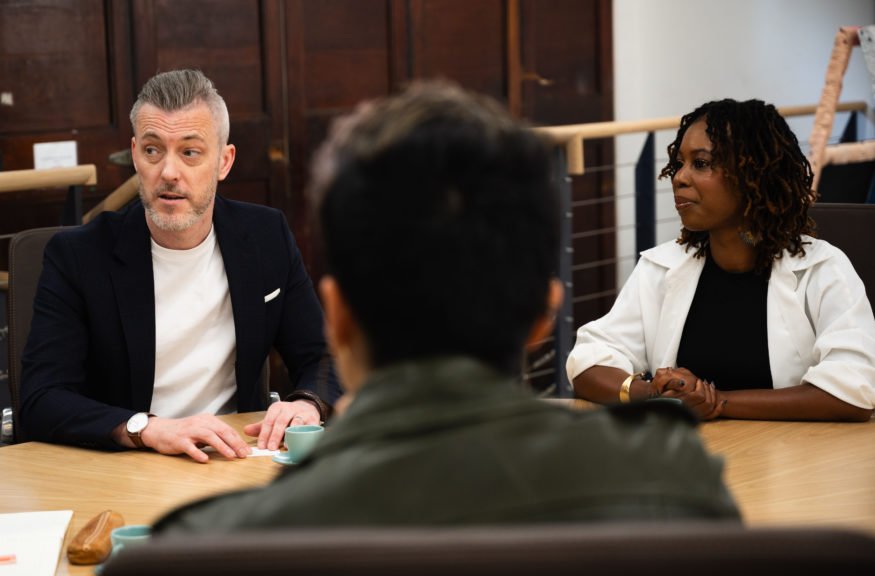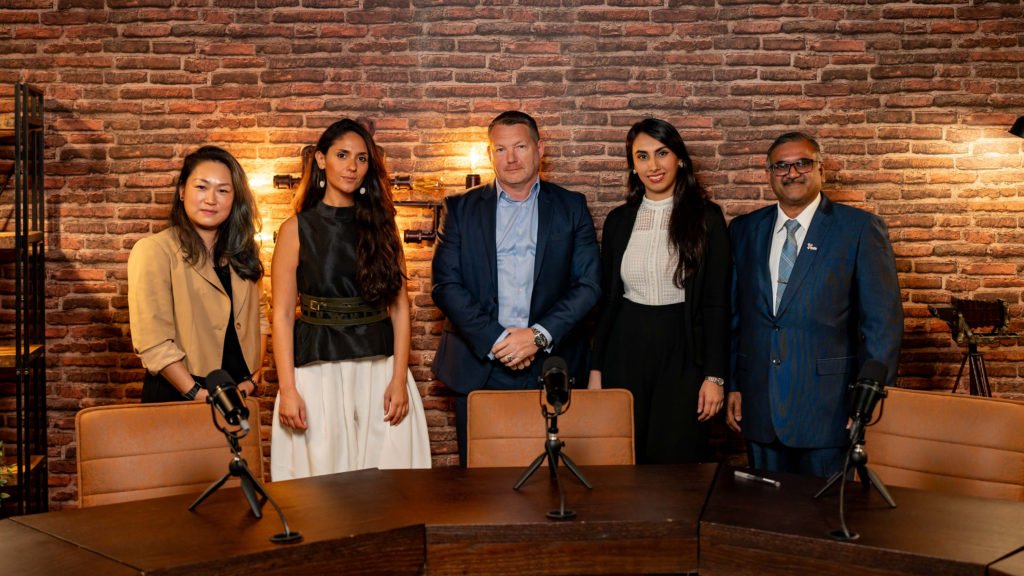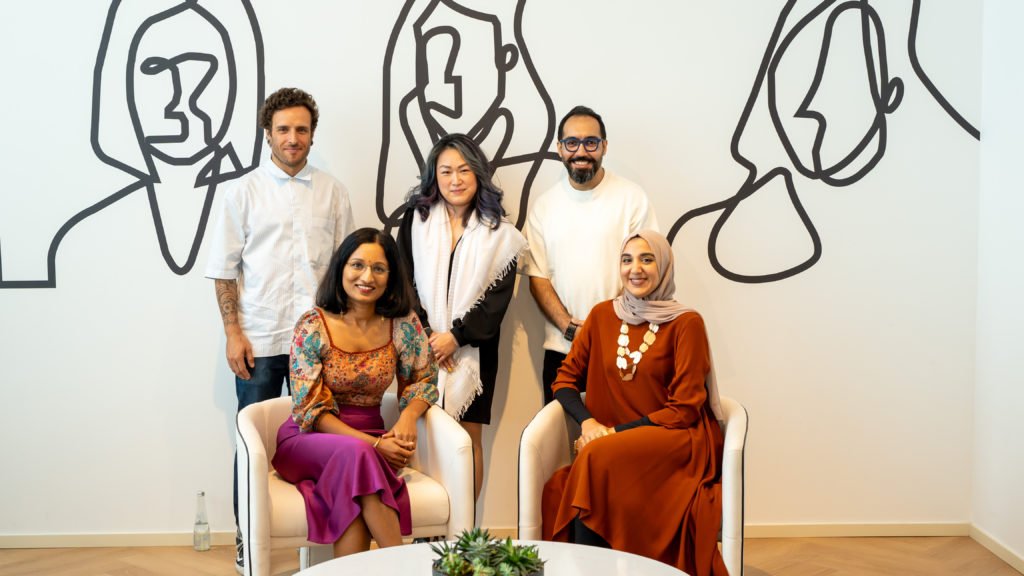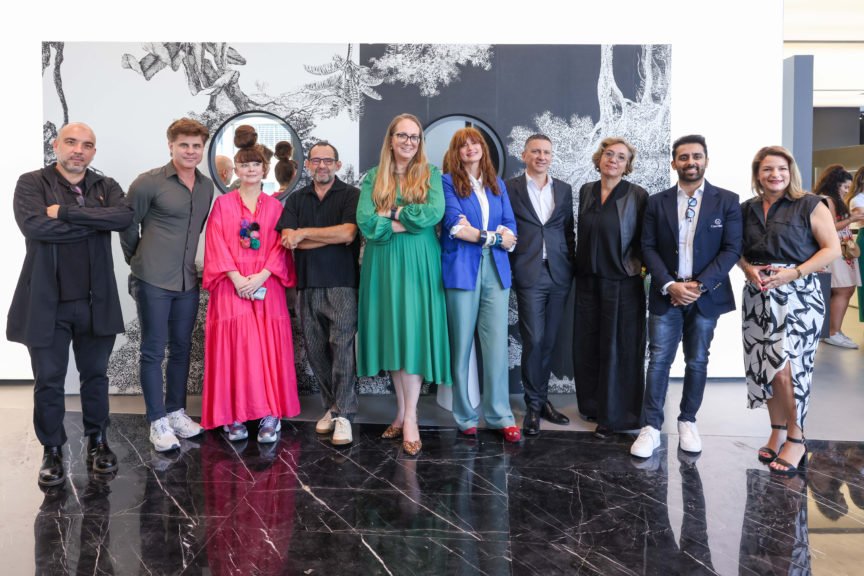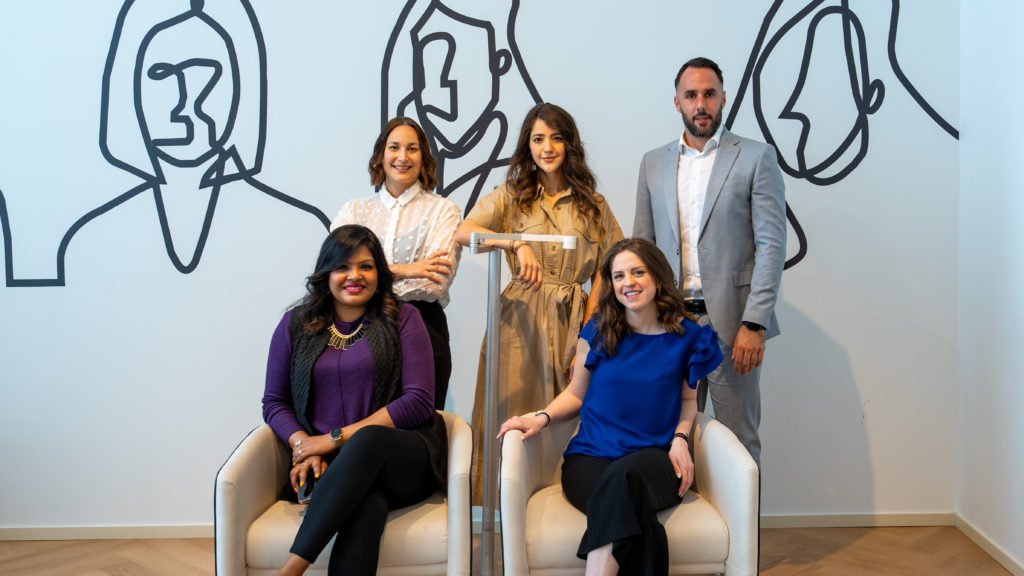“At Arper, we have been transforming the Project of Living from an idea into a strategic approach”, Justine Welch, Sales Director, Arper Middle East, addressed New York University Abu Dhabi students, project managers, architects, and dealers on an early Thursday evening. The wide-eyed students had boarded a bus following their regular university programme to attend a debate between known faces in Dubai’s interior design industry. Attending industry professionals were keen on seeing it all unfold, too.
Behind the scenes, the participating experts got final glances at their discussion points before stepping in to tackle the constant tussle between flexible and traditional working environments. Moderated by the gregarious Oliver Baxter, the session began in high spirit. Canadian University Dubai‘s Albert Fakhoury and Brand Creative‘s Carla Conte were for the resolution of the emerging flexible working. Meanwhile, New York University Abu Dhabi‘s Goffredo Puccetti and SAY Studio‘s Laila Al-Yousuf were to delve into the practicality of traditional, in-office routines.
Kata and Aava02 filled the venue from Arper’s latest Project of Living edition. Students got to experience Justine’s definition of ‘furniture that adapts to the perpetually evolving human living’ as they took to their seats for the next 60 minutes. Here are the top takeaways from the hour…
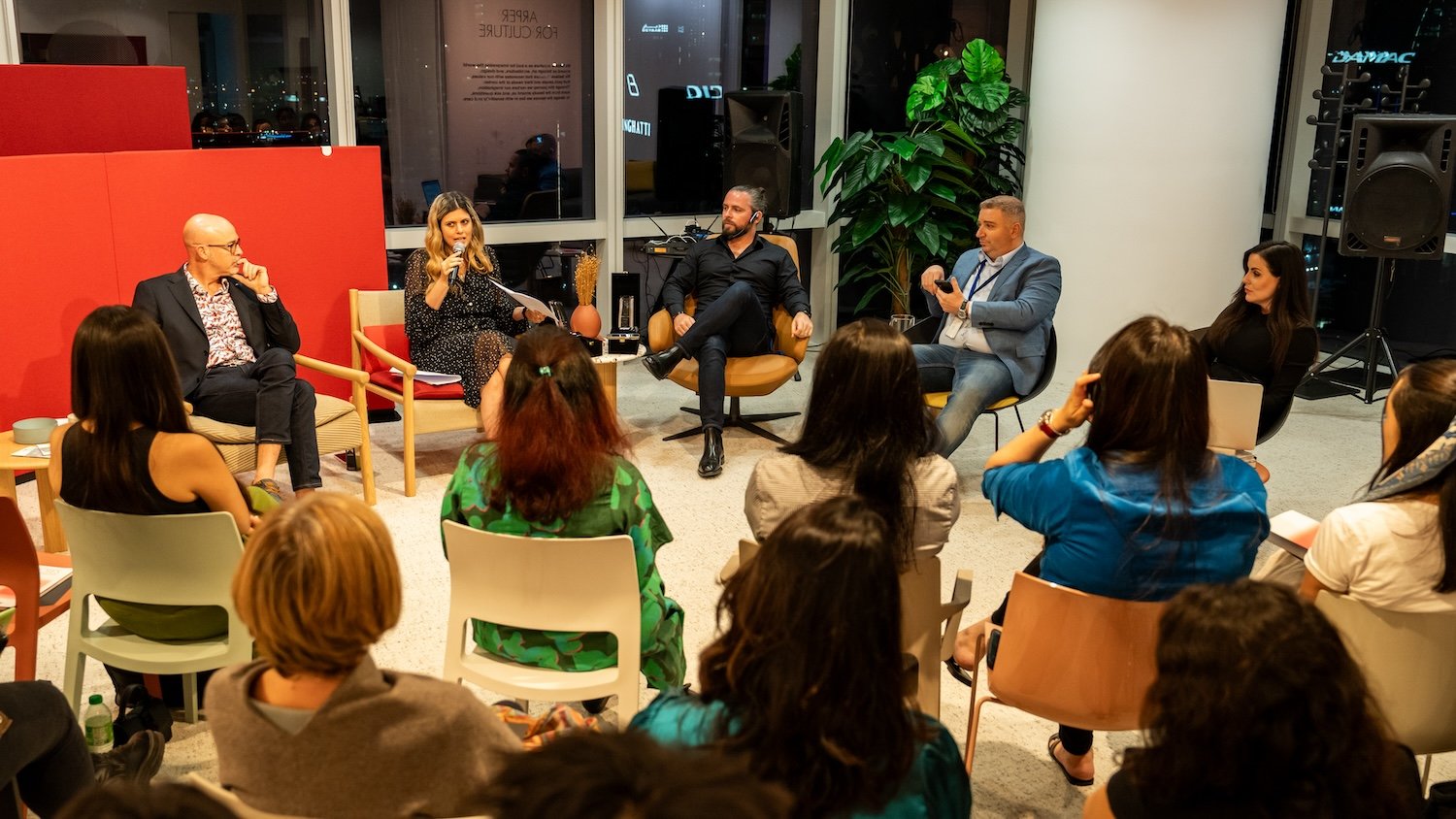
The Inscrutable Work-Life Balance
“We don’t live to work. We work to live.”
From ‘work-life balance is a myth’ to ‘work-life is a must’, 2023 has seen enough and more LinkedIn wars. But for those who abhor the hustle culture, Albert had facts favouring flexible working. “Finland has the most flexible working hours, and it is also the country where quality of life ranks higher than most”, she shared. Improvements in productivity and saving commute time are major contributors to an individual’s self-worth and well-being.
Conversely, Laila quickly alleged that working from home or sans a routine meant blurring boundaries. “Employee productivity could increase because they are at their desk longer than usual. Without realising it, you might work well into the evening, leaving no time for leisure”, she said. In addition, distractions at home could mean sacrificed concentration and unforeseen hurdles. “Parents with young children or those with roommates could lose out on time due to such disturbances,” she enlightened.
One solution cannot fit all; the answer could be a hybrid solution. But here the crux is to realise one’s prejudice and favour what propels growth over sticking to convenience.
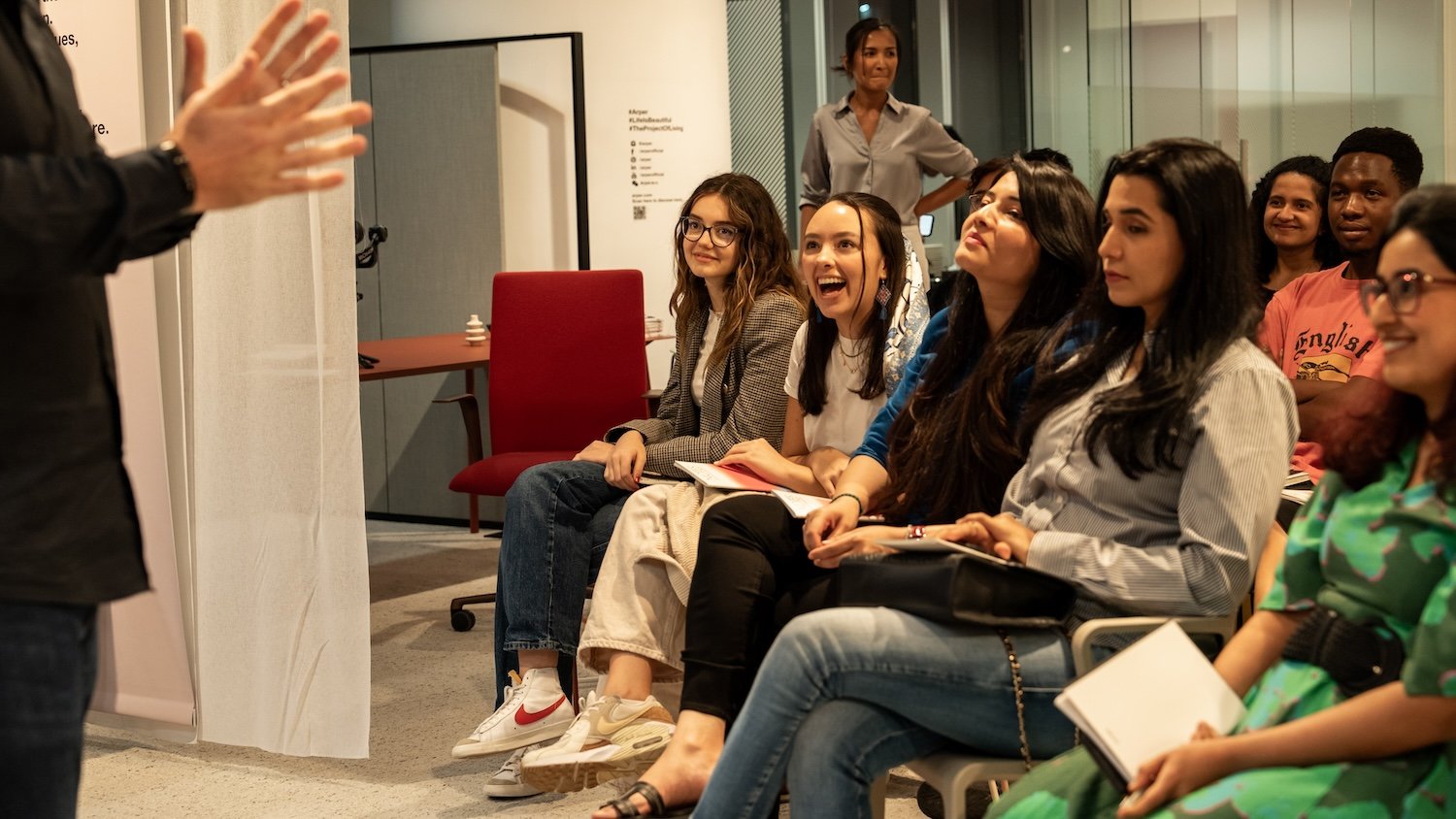
The ‘Social’ Factor
“Out of sight, out of mind.”
“Humans are social animals”, Goffredo began. “There is a reason all of us have gathered here and are not attending a Zoom call.” Continuing his stance, he mentioned how structure is incumbent for measurable growth.
Then, Laila highlighted how the younger generation’s preference for flexible working could have ill effects. Mentors need to review tasks, emphasise strong suits and introduce more efficient ways to help their mentees. Without working in the same space, upcoming professionals miss out on receiving essential feedback.
“How many of us have attended a Zoom call where the cameras were off?” Laila asked the crowd. She opined that technology must develop more for professionals to rely on it. Collaborating on a task in person over having an erratic to-and-fro where each party has to redo their contribution every time feedback is shared can be counterproductive.
“Because each person has their working hours, it could be difficult to coordinate a simple fifteen-minute call. If all of us were in one place, it would take two minutes to get into a huddle”, she expressed. Flexible working also makes it a task for employers to size their offices right. From superior IT security to increasing depression due to working in isolation, Laila covered topics that are harmful inconspicuously.
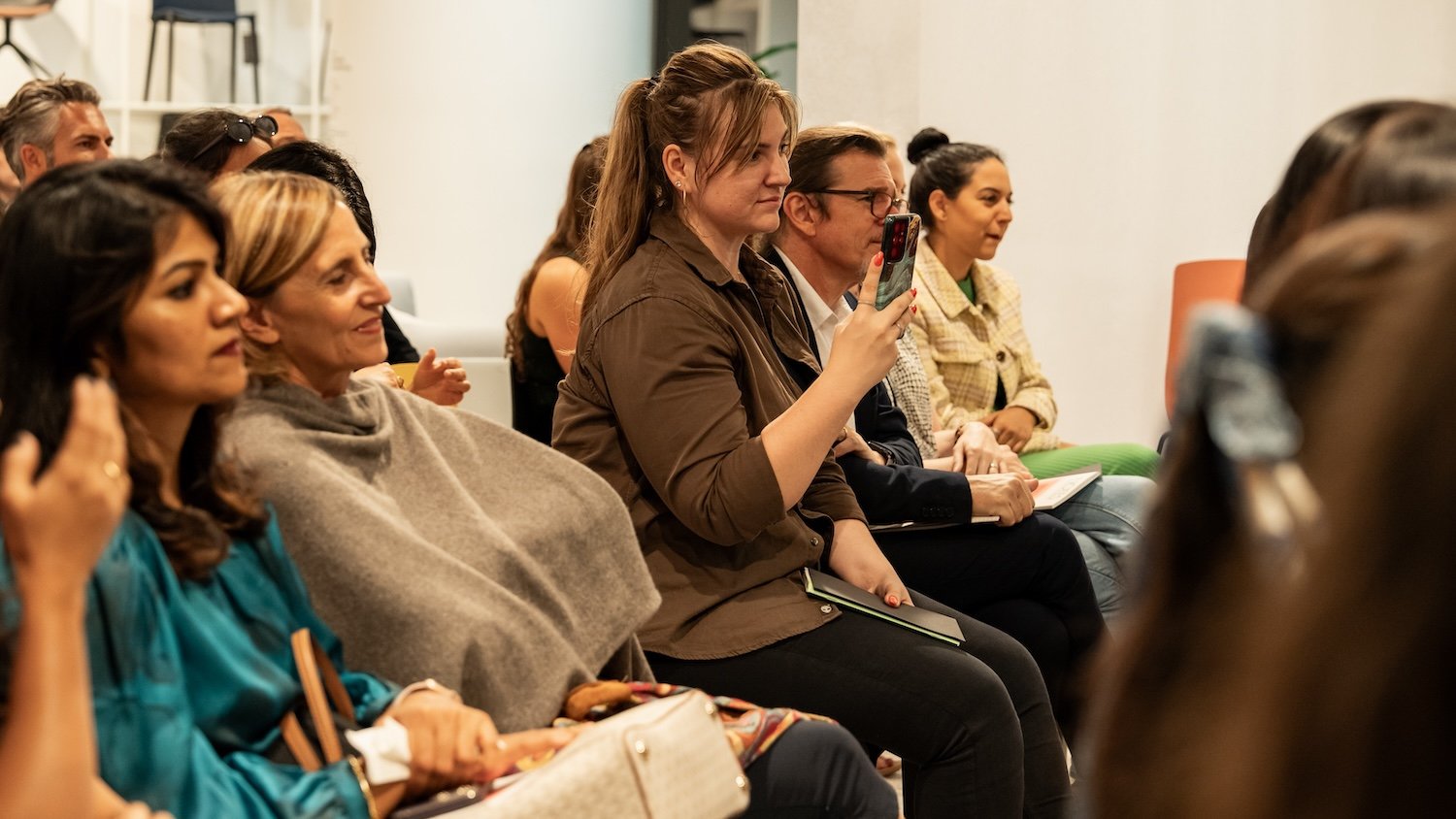
The Employer’s Responsibility
A Flourishing Business v/s Employee Well-being
“To make a Zoom call engaging should be the employer’s onus”, Carla put forth firmly. It must be the employer’s responsibility to ensure that employees have the right gadgets and services even if they work remotely. As a leader, Carla believes the culture at a company plays a pivotal role in determining participation. She also pointed out that adopting flexibility could be an opportunity for international participation, which could broaden horizons significantly.
But, Laila contended that working traditionally is not synonymous with unsupportive administration. However, it is also pertinent to look at this evolution from a business perspective. Organising and orchestrating employee coordination from varied locations could be an energy-draining and daunting task. It could hamper operations.
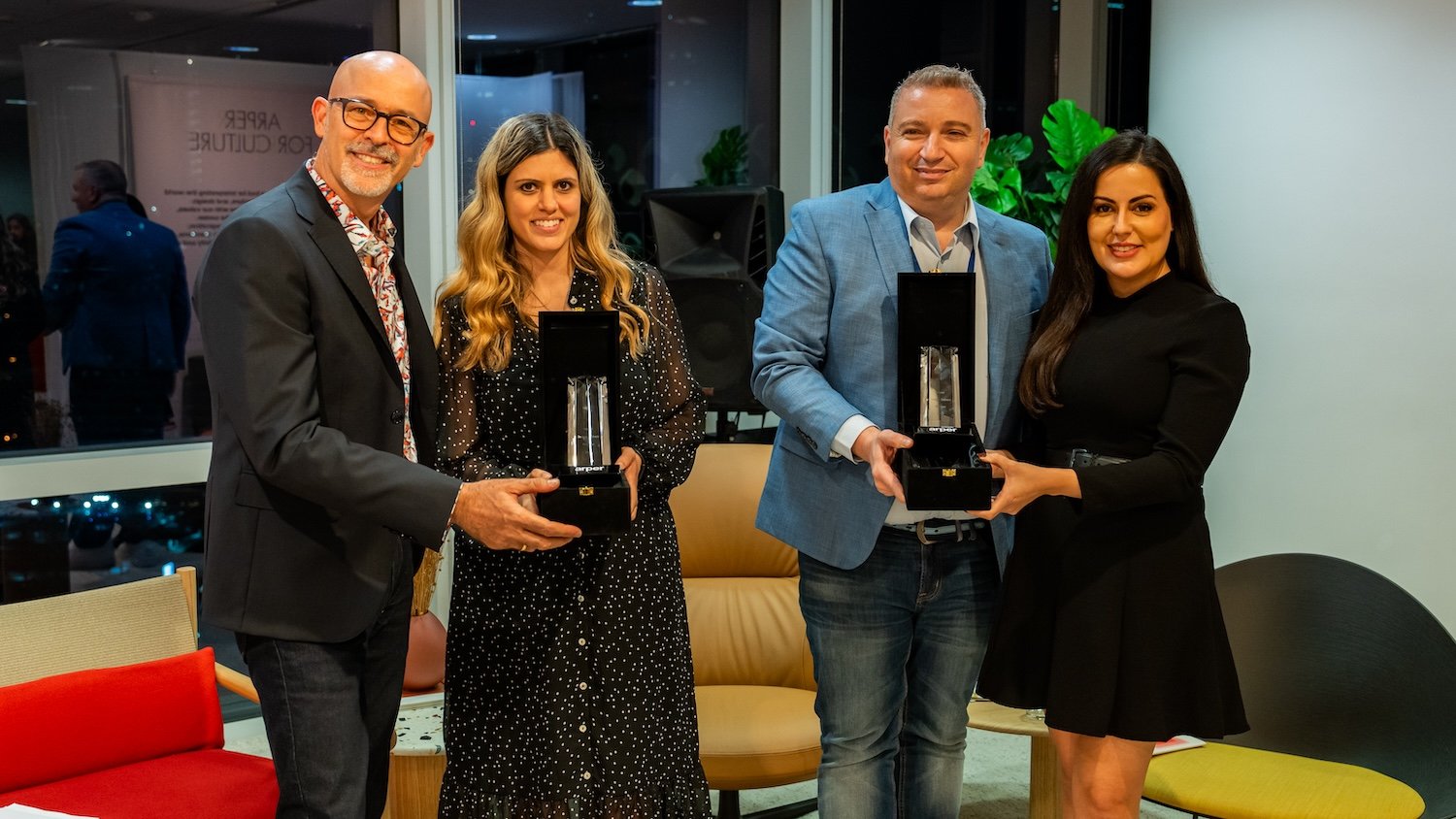
Once arguments at both ends had concluded, Oliver asked for a quick show of hands to see who had swayed from the original opinions. Next, he urged the students to raise their hands for who they felt had a more compelling stance, and to everyone’s surprise, the voting ended in a draw.
Yet the result was telling. One way or another, for a corporation’s future, the approach has to be tailored to their functioning. Much like Arper’s Project of Living, the answer lies in adjusting one’s surroundings, not their utility.
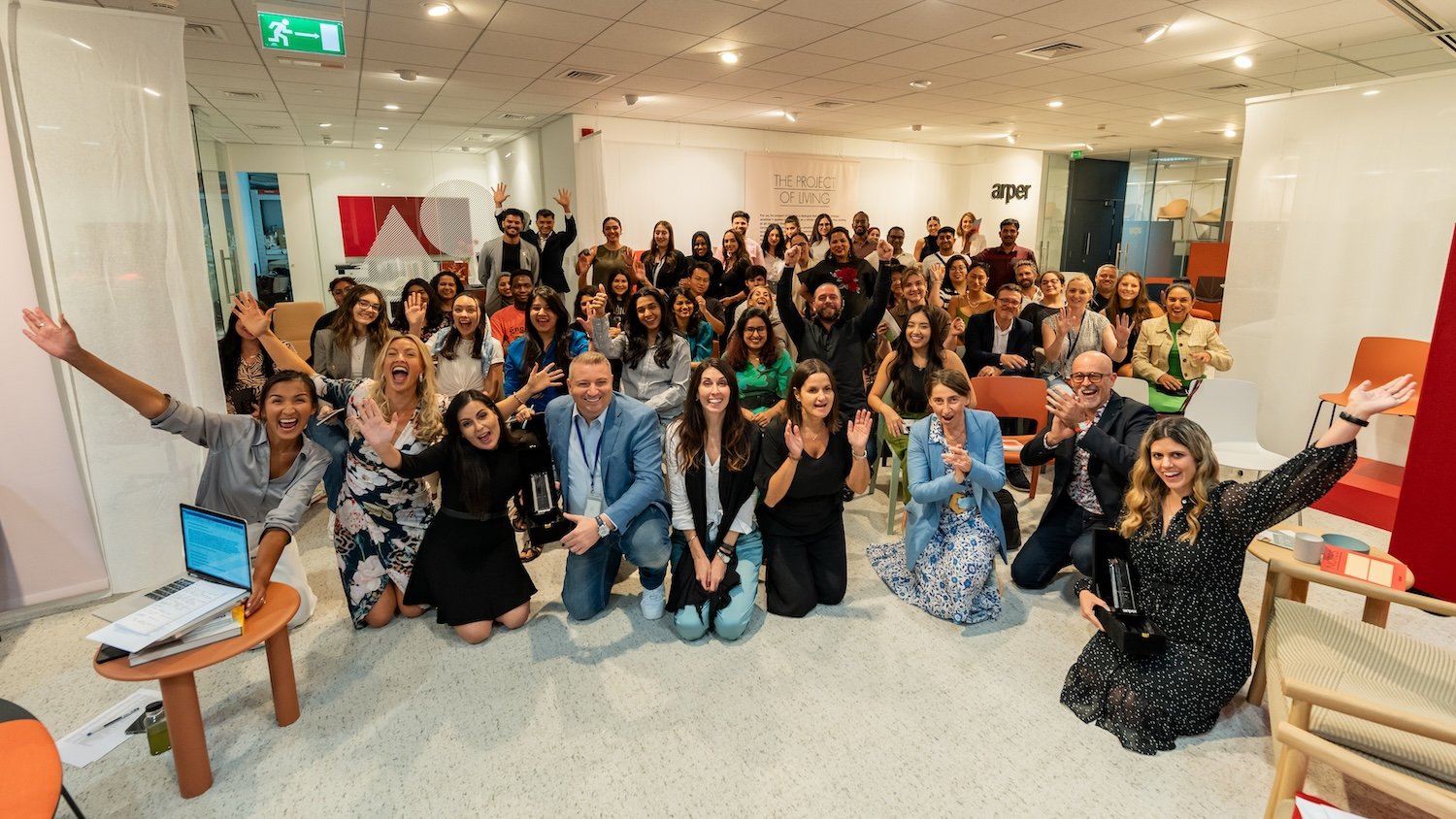
Article info
Article:
Date added:
21 December, 2023

